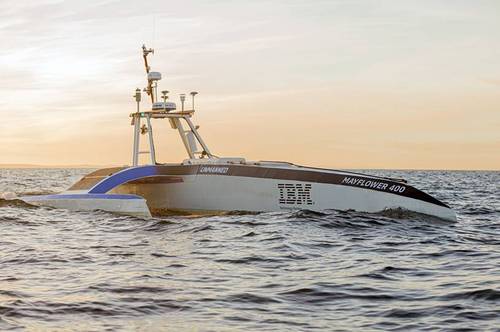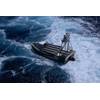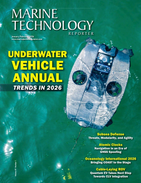IMAS Technology Mitigates Risks for USVs
Once a niche technology, Unmanned Surface Vessels (USVs) are at the center of a transformation in the maritime industry. From offshore surveying and environmental monitoring to defense operations, USVs offer compelling advantages in efficiency, cost reduction, and human safety. However, as these autonomous and remotely operated vessels become more prevalent in our oceans and waterways, they bring unique operational challenges that require innovative solutions.
The remote operation of vessels at high speeds creates a distinct set of risks that traditional maritime safety approaches fail to address adequately. Hefring Marine's Intelligent Marine Assistance System (IMAS) technology offers a solution designed to enhance USV operations and mitigate these emerging risks.
The high-speed USV challenge
The growing demand for faster, more efficient USV operations has created a critical safety gap. As USVs operate at increasingly high speeds to meet operational requirements, remote operators face unprecedented challenges in maintaining safe vessel control. Without the physical feedback and environmental awareness that comes from being present on a vessel, remote pilots must rely entirely on raw sensor data and video feeds that often provide incomplete situational awareness.
This information gap becomes particularly problematic during high-speed operations, where several critical factors converge to create dangerous scenarios:
- Appropriate operating speed
- Reduced reaction time
- Sea conditions and speed
Recent events highlight concerning trends in USV incident rates, with collision events increasing as deployment expands and operational speeds increase. A striking example occurred on June 23, 2025, near Channel Islands Harbor off California's Ventura coast, when a Navy-operated unmanned surface vessel, apparently during a tow operation, received an unintended engine command. The USV accelerated unexpectedly and flipped the support towboat, capsizing it in the marina. Although emergency responders rescued the captain and no medical attention was accepted, the Navy immediately paused the exercise and implemented a safety stand‑down to investigate the root cause of the inadvertent command.
IMAS: A comprehensive solution for high-speed USV safety
Hefring Marine's Intelligent Marine Assistance System (IMAS) was initially developed to enhance safety on high-speed manned vessels. This technology has now been specifically adapted for the unique requirements of USVs, creating a safety layer that bridges the awareness gap for remote operators during high-speed operations.
IMAS technology integrates seamlessly with existing USV control systems to provide:
- Dynamic speed management
- Real-time risk assessment
As maritime authorities worldwide develop new regulations for USV operations, advanced safety systems like IMAS will be essential for meeting emerging compliance requirements, earning public trust, and enabling these vessels to reach their full potential. By addressing the unique challenges of high-speed, remote operations, IMAS not only supports regulatory compliance through comprehensive data logging for incident investigation and operational improvement, but also positions USV operators to safely capitalize on the speed and efficiency advantages that make these vessels so valuable across maritime applications.















 February 2026
February 2026



